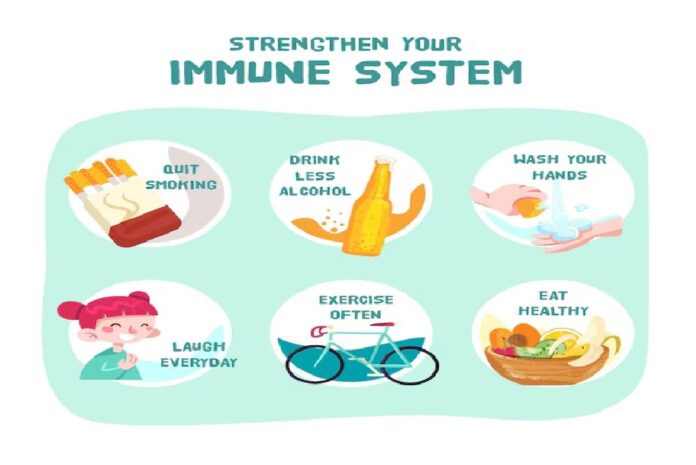Your body’s immune system — a collaboration between organs, cells and proteins — fights germs to keep you from getting sick. The immune system changes throughout life as people are exposed to bacteria, viruses and other germs. These exposures, and exposure through vaccines, teach the immune system to recognize and eliminate germs later in life.
Weakened immune system
It’s almost never the case that your immune system is completely weakened, Milner says. In most cases, only a small part of the immune system is weakened, making you more likely to get infected with specific germs, not all. Some people have stronger immune systems than others, so they’re resistant to more kinds of infections. Very few people are immune to all kinds of infections.
How to tell if your immune system is weak or strong
Unfortunately, most people find out that a part of their immune system is weak only when they get an infection. But there is no single test that can check the immune system.
Age plays a big role in the immune system. Young children who are exposed to an infection for the first time are more likely to have symptoms than adults. And older adults may find that their immune system cannot fight off illness as well as it did in childhood.
How to boost your immune system
Scientists have been studying the direct relationship between lifestyle choices and a strong immune system. What we know now is that healthy living is good for overall health and vaccinations are the best supplement available. Most studies show that dietary supplements are only useful if you have a nutrient deficiency. Taking supplements along with a healthy diet does not boost your immune system much.
How to keep your immune system strong
Milner recommends:
Eat as many fresh fruits and vegetables as possible every day.
The micronutrients they provide ensure that you don’t miss out on important nutrients like zinc and vitamin A, which your immune system needs to fight off invading microbes. Note that most supplements are no better than the nutrients you get from foods.
Fiber from fruits and vegetables can help your gut microbiome make important compounds for a healthy immune system.
Be physically active by walking and exercising.
Studies show that the immune system is very responsive to exercise. Exercise and immune regulation are interconnected and affect each other. Exercise changes immune regulation by affecting cells and has anti-inflammatory effects.
Sleep at least seven hours a night.
The immune system is negatively affected when the body doesn’t get enough sleep.
Lack of sleep decreases the activation of natural killer cells, which increases the risk of cancer and viral infections; increases the production of inflammatory cytokines, which increases the risk of cardiovascular and metabolic disorders; And antibody production is reduced, increasing your risk of infection.
Reduce stress.
All types of stress — psychological and physical — directly weaken parts of your immune system, increasing your risk of infection or reactivation of the virus. Shingles, a painful rash that results from a reactivated chickenpox virus, often flares up when people are experiencing chronic stress.
Stress can also cause the “patrols” in your immune system — certain cells that tell the immune system to put down attacks — to fail. When this happens, a lot of inflammation can occur. Hives are one example of a stress-induced breakdown in immune system patrol.
Limit alcohol.
Alcohol disrupts immune pathways, which can impair the body’s ability to defend against infection, cause organ damage, and impair recovery from tissue damage.
Don’t smoke.
Smoking increases pathogenic (disease-causing) immune responses and/or decreases immune defenses.
Get recommended vaccines.
Vaccines, also called immunizations, teach the immune system to make antibodies that fight infections before they make you sick.
To increase immunity to viruses, contact – 9821182583 , 7701924488





